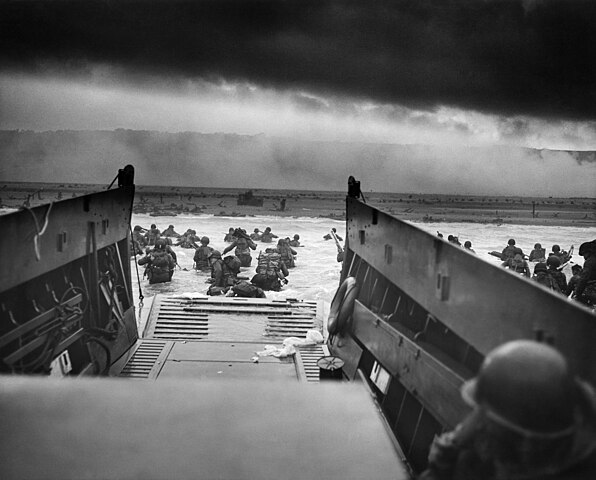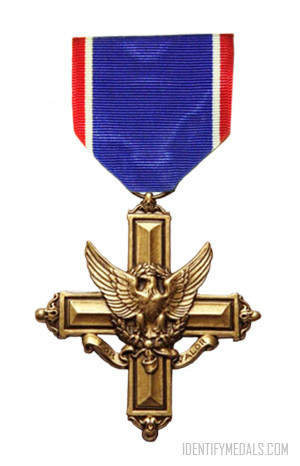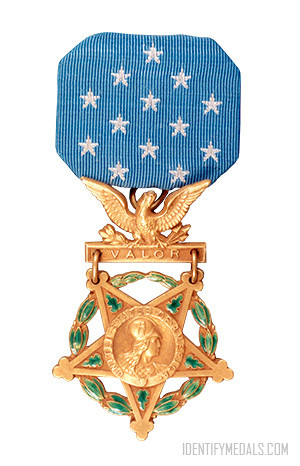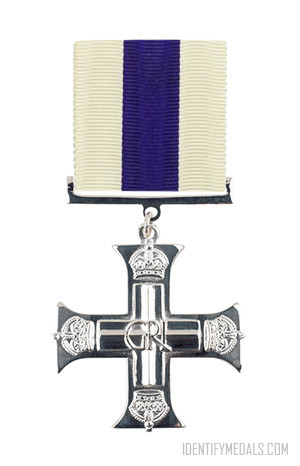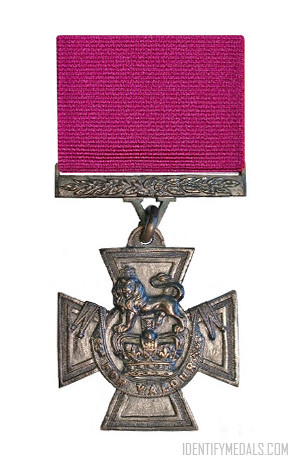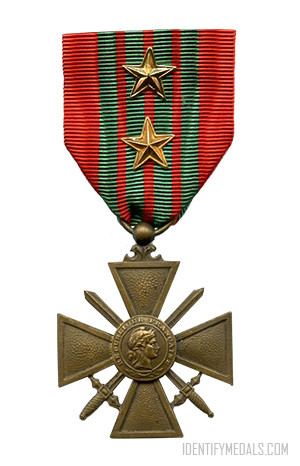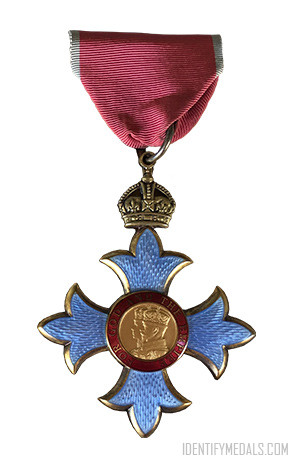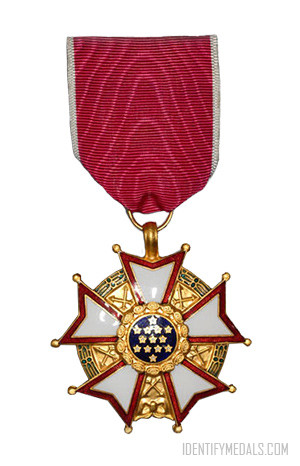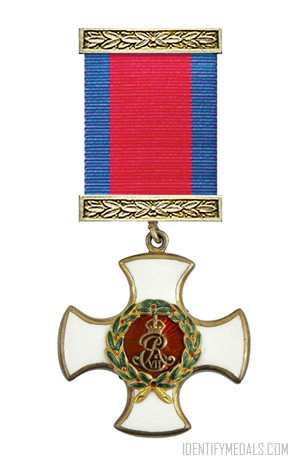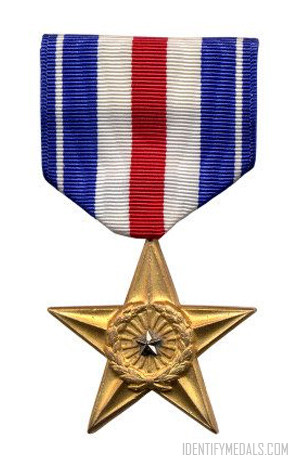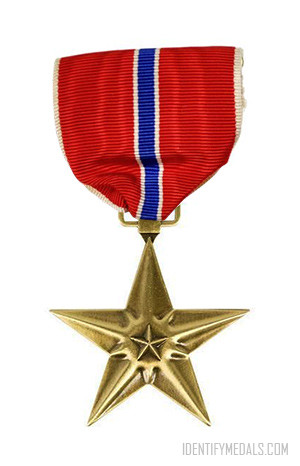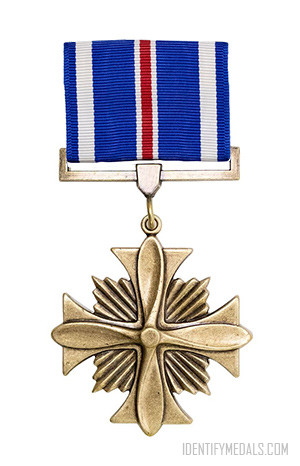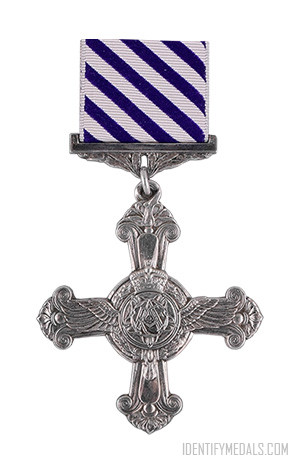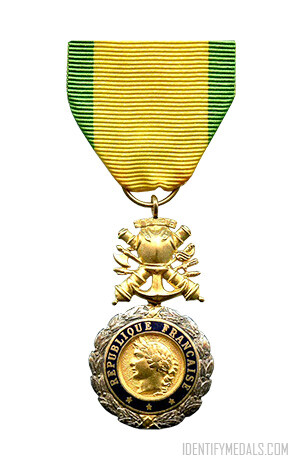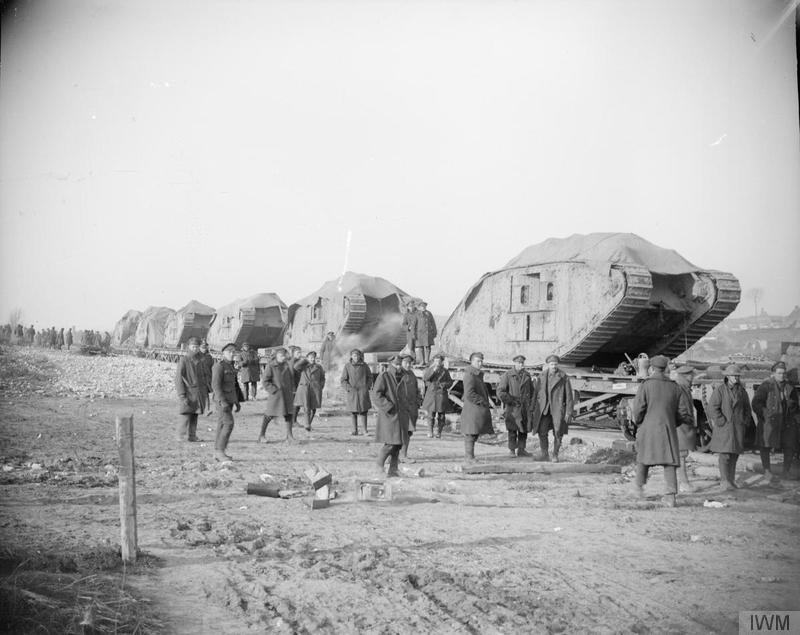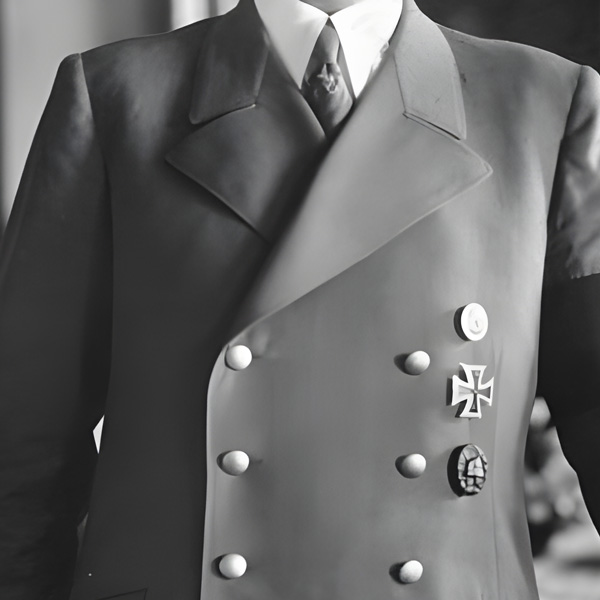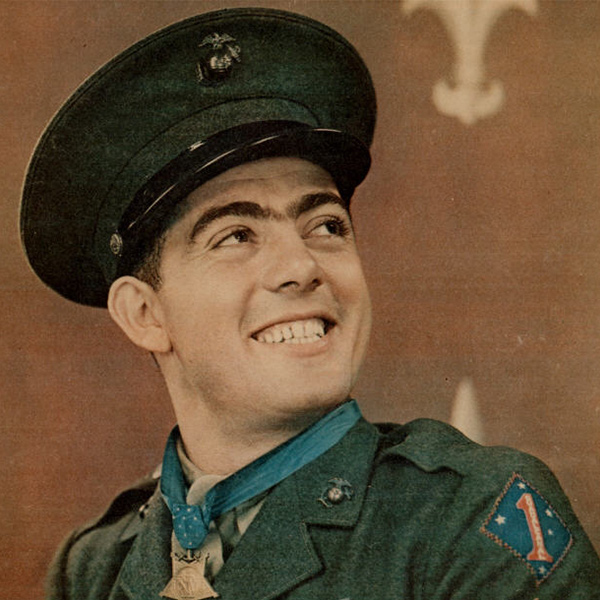The D-Day invasion on June 6, 1944, was a heroic and grueling undertaking that tested the courage and resilience of Allied forces. Recognizing the bravery and sacrifices made during this monumental assault, several military decorations and medals were awarded to soldiers, sailors, airmen, and support staff who played key roles in the operation. Medals from various Allied nations honored both individual acts of valor and collective contributions, reflecting the international scale and significance of the invasion.
In thi article, we will take a look at the most notable medals awarded for service and heroism during the D-Day invasion.
1. The Distinguished Service Cross (United States)
The United States awarded the Distinguished Service Cross (DSC) to individuals who displayed extraordinary heroism in combat.
On D-Day, many American soldiers who braved the beaches of Normandy received this honor, recognizing actions that went beyond the call of duty, especially under heavy enemy fire.
A story of courage:
Lieutenant John M. Spalding of the U.S. Army’s 1st Infantry Division was awarded the Distinguished Service Cross for extraordinary heroism on D-Day. Facing relentless machine-gun and mortar fire on Omaha Beach, Spalding demonstrated remarkable courage, repeatedly risking his life to rally and lead his men forward across the deadly open sands.
His decisive actions and personal bravery inspired his troops to secure a foothold on the beach, contributing to the success of the invasion despite overwhelming odds. Spalding’s courage on June 6, 1944, remains a testament to the valor displayed by Allied forces at Normandy.
2. The Medal of Honor (United States)
The highest military decoration in the United States, the Medal of Honor was awarded to soldiers who demonstrated extreme valor at the risk of life.
During the Normandy landings, four American soldiers received this prestigious award for their actions on Omaha and Utah beaches.
A story of courage:
Brigadier General Theodore Roosevelt Jr. earned the Medal of Honor for his extraordinary bravery on D-Day. At 56, he was the oldest man and only general to land with the first wave at Utah Beach. When he discovered his troops had landed off course, he famously said, “We’ll start the war from right here!” and led them in securing the area under heavy fire.
Walking with his cane, Roosevelt inspired his men through calm, courageous leadership, helping establish a crucial foothold. His actions became a symbol of resilience and quick thinking during the Normandy invasion.
3. The Military Cross (United Kingdom)
The British Military Cross was awarded to officers who exhibited exemplary gallantry during active operations against the enemy. Numerous British soldiers received the Military Cross for their contributions during the Normandy invasion, particularly for leading charges on heavily fortified German positions.
A story of courage:
Captain Patrick Porteous of the British Army earned the Military Cross for his bravery on D-Day. As a member of the Royal Engineers, Porteous led his unit onto Sword Beach under intense enemy fire.
Despite being wounded, he pressed forward to clear mines and obstacles, enabling his troops to advance. When his unit faced heavy machine-gun fire that pinned them down, Porteous took command, directing effective counter-fire that silenced the enemy positions. His courageous actions and leadership under fire played a crucial role in securing Sword Beach, earning him the Military Cross for gallantry on that historic day.
4. The Victoria Cross (United Kingdom)
The Victoria Cross (VC), the highest British military honor, was awarded to soldiers who demonstrated exceptional bravery. Although awarded sparingly, the VC was given to a few who took decisive actions against formidable odds, often at great personal risk. The honor underscored the courage of individuals who made extraordinary sacrifices during the invasion.
A story of courage:
Company Sergeant Major Stanley Hollis of the British Army’s Green Howards regiment was awarded the Victoria Cross for his exceptional bravery on D-Day, the only VC awarded for actions on June 6, 1944.
Landing on Gold Beach, Hollis led his men in clearing enemy bunkers under heavy fire. Spotting a machine-gun nest threatening his unit, he charged it alone, taking out the position and saving numerous lives. Later that day, he risked his life again by rescuing trapped comrades under fire. His fearless actions and leadership inspired his men and helped secure key positions, earning him Britain’s highest military honor for valor.
5. The Croix de Guerre (France)
The French government awarded the Croix de Guerre to Allied soldiers who contributed significantly to the liberation of France. This decoration was given to both individuals and units, including American, British, and Canadian soldiers. It symbolized France’s gratitude for the Allied efforts on D-Day and throughout the Normandy campaign.
A story of courage:
Sergeant John Bodnar, an American paratrooper with the 101st Airborne Division, was awarded the Croix de Guerre by France for his bravery on D-Day. Dropped behind enemy lines near Sainte-Mère-Église, Bodnar’s unit came under heavy fire from German forces. Despite being wounded, he led a small group to disable a machine-gun nest, clearing a path for his fellow paratroopers.
His courage and determination helped secure key positions crucial to the success of the Allied landings. In recognition of his heroism and contribution to the liberation of France, he was awarded the Croix de Guerre, one of France’s highest honors for bravery.
6. The Order of the British Empire (United Kingdom)
Some British soldiers, medics, and support staff received the Order of the British Empire (OBE) for outstanding service. This award recognized contributions that may not have been in direct combat but were nonetheless essential to the success of the operation.
A story of courage:
Lieutenant Colonel Terence Otway was awarded the Order of the British Empire (OBE) for his leadership and meticulous planning during D-Day. Tasked with leading the 9th Parachute Battalion to destroy the Merville Battery—a heavily fortified German artillery position threatening Sword Beach—Otway’s men faced intense enemy defenses.
Despite heavy losses during the parachute drop, he led a courageous assault on the battery with a fraction of his original force. Under Otway’s command, the battalion successfully disabled the guns, helping to secure the beach for the incoming Allied forces. His leadership and success under challenging conditions earned him the OBE, recognizing his significant contribution to the invasion.
7. The Legion of Merit (United States)
The Legion of Merit was awarded to U.S. soldiers, as well as Allied personnel, for exceptional conduct and meritorious service in wartime. During the Normandy invasion, this award honored those who made outstanding contributions to the overall success of the operation.
A story of courage:
Colonel James E. Rudder was awarded the Legion of Merit for his extraordinary leadership and courage during the D-Day invasion. As the commander of the 2nd Ranger Battalion, Rudder led his men in the assault on Pointe du Hoc, a strategic cliffside position fortified with German guns aimed at Utah and Omaha Beaches.
Despite intense fire and treacherous terrain, Rudder’s Rangers scaled the cliffs under his command, neutralizing the German defenses after fierce combat. Wounded twice, Rudder refused to leave his men, inspiring them to secure the position and protect the landing beaches. His bravery and leadership earned him the Legion of Merit for outstanding service.
8. The Distinguished Service Order (United Kingdom and Commonwealth)
Awarded for exceptional leadership in combat, the Distinguished Service Order (DSO) recognized the actions of officers who demonstrated remarkable command under fire. Many British and Canadian officers received this award for their leadership on D-Day and in the days following.
A story of courage:
Lieutenant Colonel Robert “Bob” Dawson, commanding officer of the 1st Battalion, Royal Hampshire Regiment, was awarded the Distinguished Service Order (DSO) for his exemplary leadership on D-Day. Landing on Gold Beach under heavy German fire, Dawson led his men through fierce resistance, directing attacks and clearing enemy positions to secure the beachhead.
Despite the chaos and relentless gunfire, he inspired his troops with his calm presence, ensuring they held their ground and pushed forward. His courage and decisive actions were instrumental in the success of the landings, earning him the DSO for distinguished leadership in combat.
9. The Silver Star (United States)
Awarded for gallantry in action, the Silver Star was given to numerous American soldiers who showed bravery under heavy enemy fire. This award often went to those who, despite danger, advanced into enemy territory or saved fellow soldiers on the beaches and beyond.
A story of courage:
Private First Class Charles N. DeGlopper of the 325th Glider Infantry Regiment, 82nd Airborne Division, was awarded the Silver Star (posthumously upgraded to the Medal of Honor) for his incredible bravery on D-Day.
During intense fighting near the French village of La Fière, DeGlopper’s unit was pinned down by German forces. Realizing his squad needed a distraction to escape, he stood up in the open, firing his machine gun and drawing enemy fire onto himself. Though he was mortally wounded, his selfless act allowed his comrades to reposition and ultimately continue the fight. His courage saved lives and exemplified heroism, earning him the Silver Star for gallantry.
10. The Bronze Star (United States)
The Bronze Star honored acts of heroism and meritorious service in combat. Many U.S. soldiers received this award for their courageous actions on D-Day, particularly those who overcame significant obstacles on the beaches.
A story of courage:
Sergeant Philip Streczyk, serving with the 16th Infantry Regiment, 1st Infantry Division, was awarded the Bronze Star for his bravery and leadership on D-Day at Omaha Beach. As his unit faced heavy German fire and obstacles, Streczyk repeatedly exposed himself to enemy gunfire to lead his men through the chaos.
He located and cleared paths through minefields, enabling his fellow soldiers to advance off the deadly beach and secure higher ground. His fearless actions and guidance under fire inspired his men and were instrumental in breaking through the German defenses, earning him the Bronze Star for heroism in combat.
11. The Distinguished Flying Cross (United States and United Kingdom)
Both the U.S. and U.K. awarded the Distinguished Flying Cross (UK) Distinguished Flying Cross (USA) and to airmen who displayed extraordinary heroism during air missions. On D-Day, Allied pilots who flew through heavy anti-aircraft fire to drop paratroopers, conduct bombings, or provide close air support were awarded the DFC for their bravery.
A story of courage:
Flight Lieutenant David Samuel Anthony Lord of the Royal Air Force was awarded the Distinguished Flying Cross for his remarkable bravery during D-Day operations. As a pilot with the RAF’s 271 Squadron, Lord flew low over Normandy to drop essential supplies to paratroopers facing fierce German resistance.
Despite heavy anti-aircraft fire, he skillfully maneuvered his aircraft to deliver his cargo with precision. His courage and flying skill under intense enemy fire ensured critical supplies reached the troops on the ground, helping them hold their positions. His actions exemplified the bravery of RAF pilots, earning him the Distinguished Flying Cross for gallant service.
12. The French Médaille Militaire
The Médaille Militaire, one of France’s highest military honors, was awarded to both French and foreign troops for exceptional service. Many Allied soldiers who fought for France’s liberation, particularly during the Normandy campaign, received this medal as a mark of France’s appreciation.
A story of courage:
Staff Sergeant Harrison Summers of the 502nd Parachute Infantry Regiment, 101st Airborne Division, was awarded the French Médaille Militaire for his extraordinary bravery on D-Day.
After landing near Sainte-Marie-du-Mont, Summers was tasked with capturing a German-held barracks to secure a key position. With just a handful of men, he charged the barracks under heavy enemy fire, clearing one building after another almost single-handedly. His fearless actions inspired his fellow soldiers and helped secure the area, significantly aiding the Allied push inland.
For his courage and contribution to the liberation of France, he was awarded the Médaille Militaire, one of France’s highest honors.
Unit Citations and Battle Honors
Many units received special commendations and battle honors for their collective bravery. U.S. units, like those involved in the assaults on Omaha and Utah Beaches, and British and Canadian regiments fighting at Juno, Sword, and Gold Beaches, were recognized with unit citations, commemorating their courage and resilience. Here are real examples of units that received citations for their bravery and actions during the D-Day landings:
29th Infantry Division (United States) – This division, known as the “Blue and Gray,” spearheaded the assault on Omaha Beach alongside the 1st Infantry Division. For their bravery under intense German fire and their success in securing the beachhead, the 29th Infantry Division received the Presidential Unit Citation.
1st Infantry Division (United States) – The “Big Red One” was instrumental in the brutal fight for Omaha Beach. Facing heavy resistance, they managed to break through the German defenses, earning the division the Presidential Unit Citation for its actions on D-Day.
82nd Airborne Division (United States) – The 82nd Airborne Division parachuted into Normandy as part of the airborne operations to secure key positions behind enemy lines. For its critical role in disrupting German forces and securing the town of Sainte-Mère-Église, the 82nd received the French Croix de Guerre.
101st Airborne Division (United States) – The “Screaming Eagles” were dropped behind Utah Beach to seize and hold key areas, such as causeways, to facilitate Allied movements inland. They received the French Croix de Guerre and Belgian Fourragere for their courage and effectiveness during the Normandy campaign.
3rd Canadian Infantry Division – This division led the assault on Juno Beach, overcoming heavily fortified German defenses and advancing inland. The division received battle honors from the Canadian government and recognition from the French for its critical role in the Normandy landings.
Royal Winnipeg Rifles (Canada) – Part of the 3rd Canadian Infantry Division, this regiment faced fierce resistance at Juno Beach, suffering heavy casualties. Their persistence and success in securing the beachhead earned them battle honors and recognition from France.
British 6th Airborne Division – Tasked with securing the eastern flank and capturing key bridges over the Orne River and Caen Canal, this division was crucial to the success of the invasion. They received battle honors and were later awarded the French Croix de Guerre for their actions.
The Green Howards (Alexandra, Princess of Wales’s Own Yorkshire Regiment) (United Kingdom) – This British regiment landed on Gold Beach and fought with remarkable courage, securing the area and pushing inland. They were awarded battle honors for their actions on D-Day.
Royal Ulster Rifles (United Kingdom) – Part of the 6th Airborne Division, this regiment was critical in securing areas east of the beaches, supporting the flanks of the invasion force. Their bravery earned them battle honors for their contributions.

